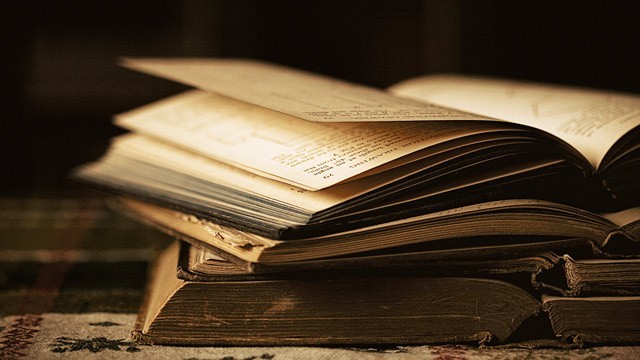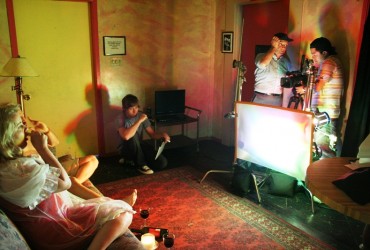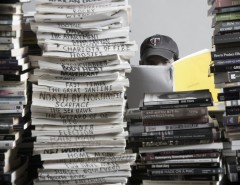There’s a problem with writing a recommended reading list: the minute you’re done, you realize how many you forgot. Then you’re left with two options: either editing the list over and over, until you’re left with a monstrous concordance of options, or submitting a selection that doesn’t encompass all your favorites.
Most people (myself included) end up conceding to the inevitable and slightly distasteful attitude of ‘well, that’s enough for now.’ But is it really? I find myself wanting to add titles I haven’t thought of in decades, obscure or seemingly irrelevant books that connect in ways that don’t make sense at first glance. I need to describe why these books must be read in this order if one is fully to understand and appreciate what is going on.
Then it gets worse. Suddenly I’m thinking beyond the now-lengthy book list I’ve concocted. Now I’m ready to include outside media. Because while books can and do stand on their own, sometimes an outside perspective or added influence can make the experience even richer. Now the reading list (which is slowly growing into a compendium of books) has become a full-on multimedia experience.
This might seem like overstepping the simple confines of a modest reading list, but trust me: certain books need to be read with music playing to achieve the right dramatic effect. Or after you finish reading, you should sit and ponder the written word while these songs play in the background. There are even websites where people lovingly construct elaborate soundtracks to their favorite literary experiences.
And then there are the movies. We haven’t even touched on the cinematic adaptations of literature yet. Some people eschew them insisting the source material is always better (they’re wrong). As a former film student and current film lover, I have a slightly different perspective: a good or bad cinematic adaptation has its redeeming factors. A good adaptation (like Vitaly Sumin’s heady and surreal reimagining of Fyodor Dostoyevsky’s Notes From Underground as a sun-soaked LA thriller in Notes From the New World) highlights all that we love about a book, and can even make us appreciate the source material on a deeper level. A good adaptation is a love letter, an homage to the books that change our lives.
Now a bad adaptation has its uses as well. When a book you truly love is turned into a sub-par movie (like The Great Gatsby or Gulliver’s Travels), it emphasizes your devotion to the source material. You remember why you really loved that book, and why you’re so utterly furious that someone got it so wrong. Oftentimes you find yourself rushing home from the theater to reread the mistreated book just to reassure yourself that, yes, it was as wonderful as you remembered. Which is why I often find myself suggesting terrible film adaptations of books I love — simply because they are terrible, but in a way that reconfirms my adoration for the books itself.
So where does this leave us with the issue of summer read lists (or indeed reading lists as a whole)? Do I provide you with not only an encyclopedic list of books to consume (which is guaranteed to change multiple times) but with music and movies to consume as well? Or do I accept that I will be eternally dissatisfied with whatever suggestions and recommendations I offer forth?
Like the reader, the reading list is constantly evolving — it shows how a person feels at a singular point in their life. Whatever movies or music accompany it only further that point. So when you share a reading list with someone, you’re offering a unique glimpse at your own psyche. So I say accept the fact that like the books you want to read yourself, the reading list you’re constructing will never be complete. See it as an eternal work in progress, and a tribute to the love of reading.
Be sure to visit us at home and sign up for our free newsletter at Dostoyevsky Reimagined: The Making of Notes from the New World. You’ll gain exclusive access to our members-only content.
Follow this developing story through our social media on Twitter, Facebook, Google+, Pinterest, Tumblr, and Instagram.







Leave a Reply